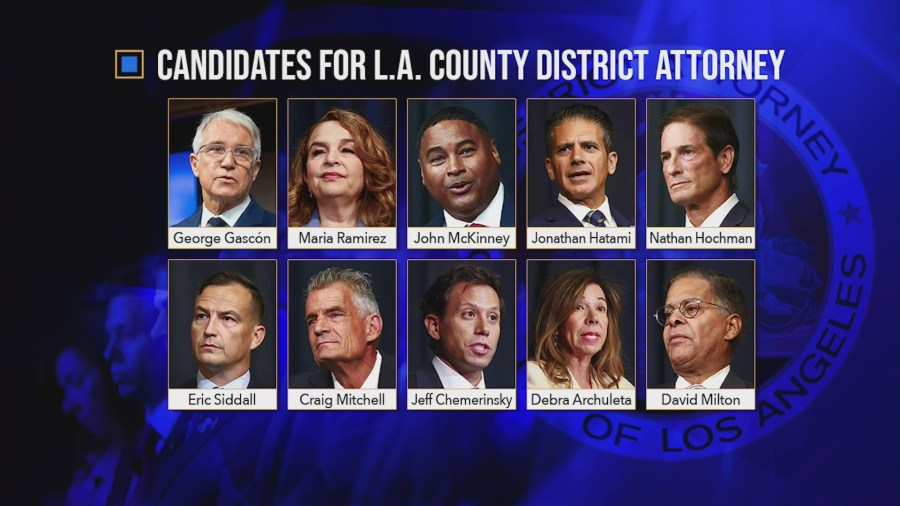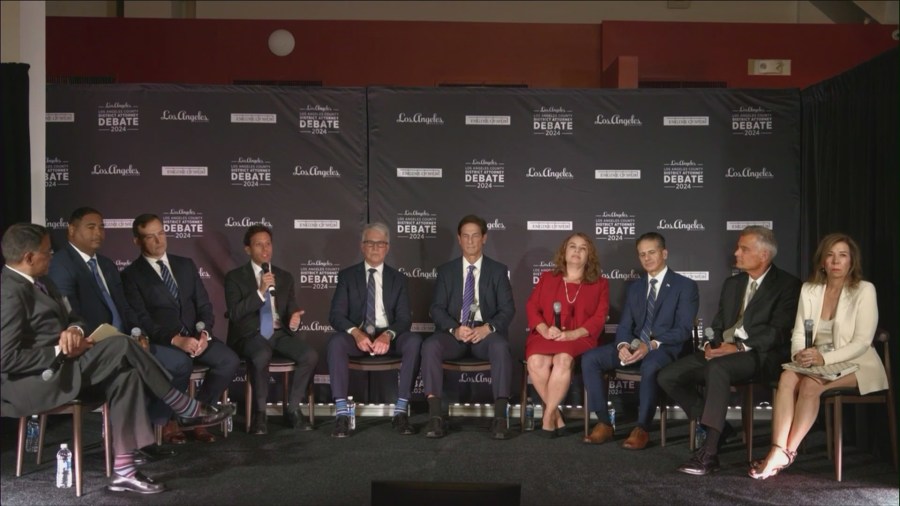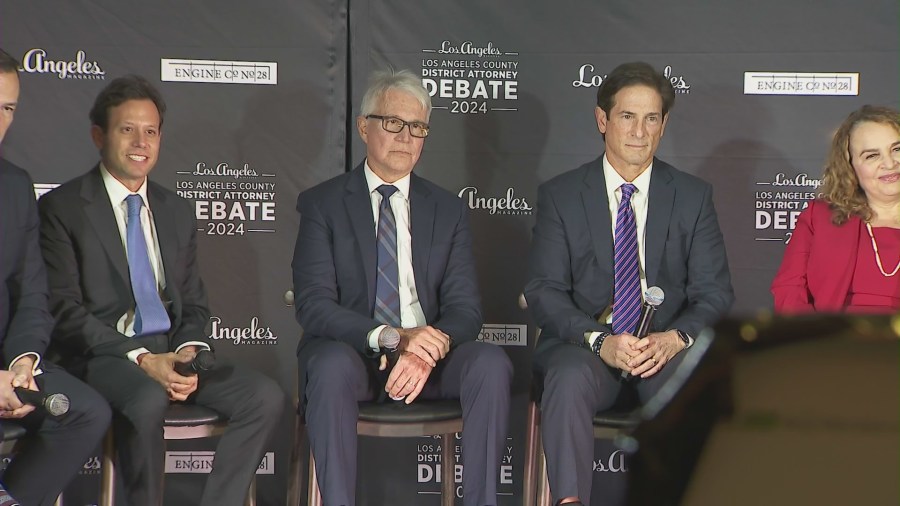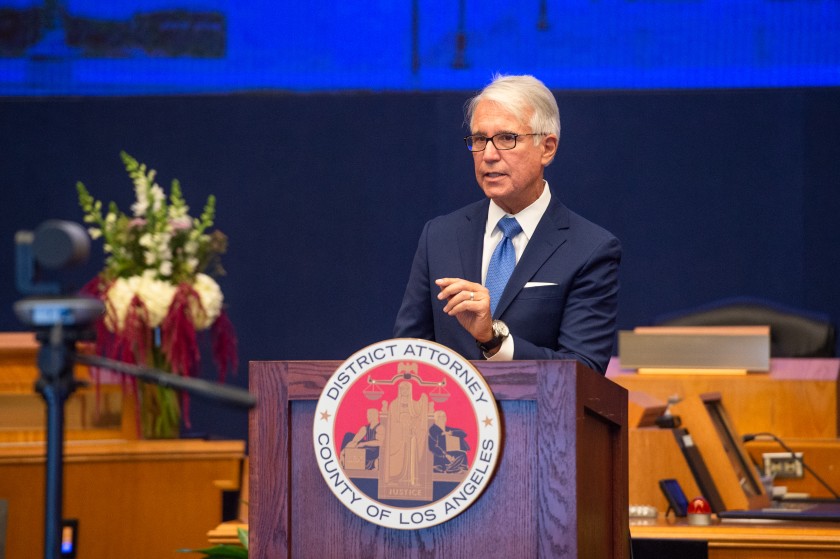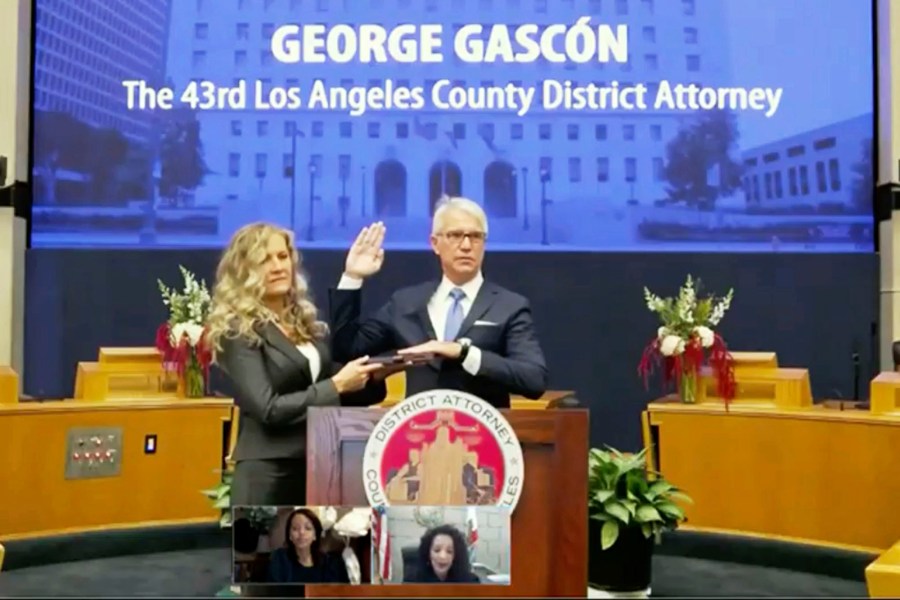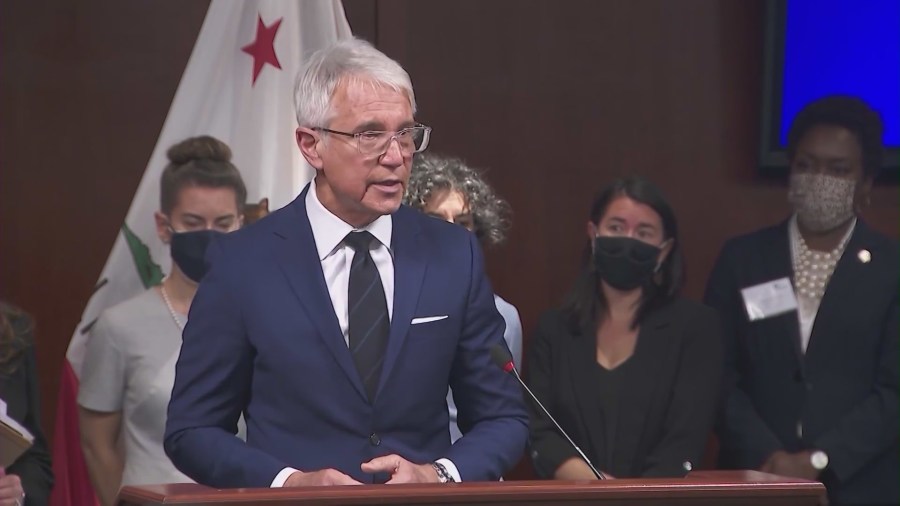Candidates hoping to be the next Los Angeles County District Attorney sparred at a fiery Thursday night debate where crime, homelessness and mental health took center stage.
Ten candidates took the stage including current L.A. District Attorney George Gascón.
Gascón was elected to the role in 2020 for his progressive platform including not seeking the death penalty, limiting excessive sentences and limiting mandatory cash bail for misdemeanors and some nonviolent felonies.
Gascón said his reforms have been working and that overall crime is down across the county.
“For the last year, we have seen crime coming down, not only in our community, but we’re seeing crime going down nationwide at the same time that we have continued with the reform efforts,” said Gascón.
His critics, however, strongly disagreed as the debate gave a glimpse into how potential candidates plan to reshape the future of law enforcement in L.A. County.
Contenders hoping to secure Gascón’s seat include:
- Eric Siddall – L.A. County Deputy District Attorney
- Jonathan Hatami – L.A. County Deputy District Attorney
- David Milto – Retired L.A. County Superior Court Judge
- Nathan Hochman – Former U.S. Assistant Attorney General
- María Ramirez – L.A. County Deputy District Attorney
- Jeff Chemerinsky – Former federal prosecutor
- John McKinney – L.A. County Deputy District Attorney
- Judge Debra Archuleta – L.A. County Superior Court
- Judge Craig Mitchell – L.A. County Superior Court
“The social experiment that Mr. Gascón has been engaging with is not working,” said Eric Siddall, an L.A. Deputy District Attorney.
“We’re ready to take on George Gascón and beat him,” said Jonathan Hatami, an L.A. County Deputy District Attorney.
“What distinguishes me from the other candidates is that I’m the only Republican in the group, said David Milton, a retired L.A. County Superior Court judge.
All nine challengers took aim at Gascón’s leadership, arguing that his progressive approach has left the greater L.A. area vulnerable — a claim Gascón vehemently disputes.
The region’s homelessness crisis, drug addiction and mental health remained in the spotlight, but the issue of crime in the Southland — and how to deal with it — took center stage.
“George Gascón’s pro-criminal special directives on his first day in office have launched the Golden Age for criminals,” said Nathan Hochman, a former U.S. Assistant Attorney General. “If you’re a criminal in L.A. County, the last couple of years have been about as good as it can be.”
“I think we would all repeal the pro-criminal directives that George Gascón put into practice,” said María Ramirez, an L.A. County Deputy District Attorney.
“I’d collaborate with law enforcement and restore the sense of partnership that I think, right now, is lacking,” said Jeff Chemerinsky, a former federal prosecutor.
“Mr. Gascón came into office having called us internal terrorists before he ever met with us,” said John McKinney, an L.A. County Deputy District Attorney.
“We don’t have mass incarceration, we have mass victimization,” said Debra Archuleta, an L.A. County Superior Court judge. “Our families, our small businesses, our communities are the recipients of the blanket policies of George Gascón.”
“I would assume the responsibility of prosecuting misdemeanors,” said Craig Mitchell, An L.A. County Superior Court judge.
Much of the debate spotlight was also on Proposition 47, a controversial measure that reshaped the landscape of nonviolent crime prosecution in California.
Enacted in 2014, Prop 47 raised the threshold for nonviolent crimes, making some property crimes under $950 and simple drug possession misdemeanors. It led to fewer arrests for certain offenses and a drop in overcrowded jails.
The intent was to save money from reduced incarceration costs, with the savings used toward drug and mental health treatment, victim services and programs for at-risk K-12 students. However, the measure had also raised concerns about limitations on holding repeat offenders accountable.
“The issue of repeat offenders, even though we have a tool to aggregate up to $950 and get to the felony threshold, we recognize that for law enforcement that may be a little difficult, so we’re looking for ways to fix that,” Gascón explained.
The primary election will be held in March. The candidate with more than 50% of the vote will become L.A. County’s new district attorney. If no candidate captures 50% of the vote, the top two finishers will head to a runoff in November.
